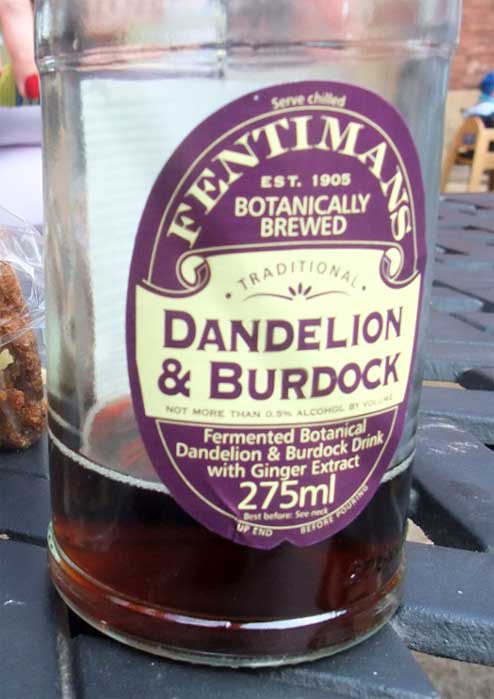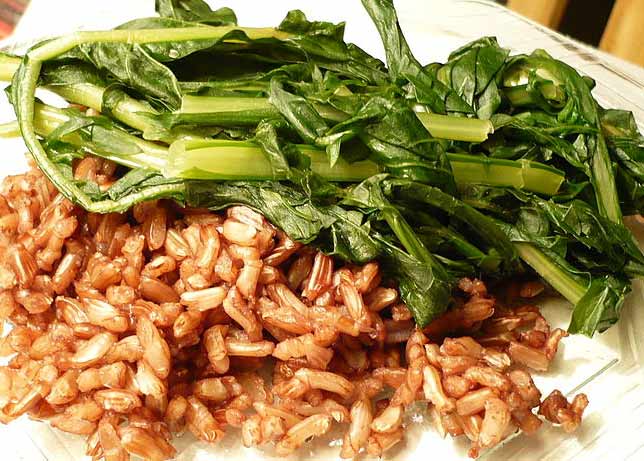Dandelion in herbal medicine
Using dandelion as a natural remedy
Dandelion (Taraxacum Officinale) is a medicinal herb with many uses including spring tonics and herbal teas. Dandelions really put on a show during spring when yellow blooms pop up in lawns all over America.

Dandelion flowers, leaves, and roots are used in herbal medicine to improve digestion, treat diabetes, and uplift the spirit after a long, cold winter. Dandelions are perfect for spring tonics and are famous for providing suport for the liver. Read more about how herbs improve liver function.
Dandelions are usually taken by mouth. They can be used in tea, tinctures, powders, and vinegars. Dandelion also makes a delicious wine.
Some people, especially those with manicured lawns, rush out in the spring to get rid of dandelions. They apply herbicide or spend hours digging them out by hand, not realizing or caring what a useful plant they are killing.
Some landscapers and gardeners consider dandelion an invasive weed, but I sure don't.

Dandelion is a liver stimulant.
Dandelion is a strong diuretic and liver stimulant. Dandelion cleanses the liver, stimulates bile flow, and aids in fat digestion. It contains strong antioxidants that help the body get rid of toxins.
Dandelion is a hard worker.
In this video, Herbal Jedi and his dad Dr. Terry WIllard PH.D., discuss dandelion in herbal remedies.
Dandelion tea
Dandelion tea is a great herb for treating depression due to winter blues, suppressed anger, or disappointment. Put in one tablespoon of chopped root per cup of boiling water and steep for thirty minutes. Strain and sip 2 or 3 cups a day for one week.
Dandelion is full of potassium and minerals.
Dandelion roots contain detoxifiers that clean out various body poisons associated with constipation, joint inflammation, gout, skin problems like acne, fluid retention, and urinary disorders.
Dandelion root tea is a favorite liver stimulant in many cultures and has even been used to treat addiction and alcoholism naturally.
Dandelion root tincture was once given to patients with failing hearts to ensure adequate potassium intake. Dandelions are one of the richest sources of potassium known to man.
Dandelion leaves also contain high concentrations of calcium, iron, silicon, magnesium, zinc, manganese, and vitamins A, D, C, B, and K.
Spring tonics
Dandelions make powerful spring tonics, and the leaves and roots are excellent natural remedies.
When the old timers made spring tonics, the main ingredient was dandelion. It restored the system after months of winter weather, wood smoke, colds, and lack of fresh vegetables in the diet.
Dandelion leaves can be eaten like mustard and collards. They are really tasty with bacon, cooking sherry, garlic, and onions.
The flowers can be added to salads. They are beautiful and full of healthy nutrients. Dandelion flowers also make delicious mead and wine. Dandelions are one of the most useful plants in herbal medicine.

Scientific studies
Studies show that dandelion has anti-diabetic properties. It is especially useful in Type 2 diabetes due to several bioactive chemicals including chicoric acid, taraxasterol, chlorogenic acid, and sesquiterpene lactones.
Dandelion is also useful in the treatment of blisters, spleen, and liver complaints.
The plant contains high levels of carotene, which protect cells from free radical damage.
Dandelion also contain lots of phlyphenols, especially in the flowers and leaves.
One interesting discovery shows that concentrations of healing properties vary with the seasons. Methylsterols are more abundant in winter, while sitosterol and cycloartenol esters are more abundant in summer.
Dandelion roots contain carbohydrates, carotenoids (lutein), healthy fatty acids, minerals, sugars, necessary vitamins, mucilage, and pectin. Some of the carbohydrates in dandelion roots are shown to kill harmful germs in the intestines.
These carbs also fight obesity, cancer, and osteoporosis.
Leaf extracts are shown to fight obesity and help prevent heart disease. Scientists report that dandelions contain many components that work together to heal and protect. This is known as synergistic action.
Bitter lactones in dandelion have an interesting profile. They are anti-inflammatory, anti-bacterial, fungicidal, anti-mutagenic, growth regulators. Phenolic components in dandelion are highly anti-oxidant and anti-carcinogenic. These properties work together to improve lipid metabolism and reduce cholesterol levels.
Dandelion is also diuretic and can act as a mild laxative. It has been used for centuries to cure liver and gallbladder complaints. Learn more about treating the gallbladder with herbs.
Dandelions and diabetes
Dandelions contain lecithin and minerals that work to stimulate insulin exocytosis. Studies show that dandelion is very useful in treating diabetics.
Dandelion helps by stimulating the release of insulin from the pancreas, which counteracts the effects of hyperglycemia. Dandelion also increases glucose uptake in muscle cells and prevents digestion of some starches, producing an anti-hyperglycemic effect.
Dandelion inhibits glucose reabsorption, reduces the activity of carbohydrate enzymes, and reduces dietary blood sugar.
Dosage
The British Herbal Pharmacopoeia recommends taking the following dose:
- 4-10 g of fresh or dried dandelion leaves daily
- or 2-5 ml of leaf tincture, three times a day
- or 1 teaspoon of leave juice two times per day
- or 2-8 g fresh roots daily
- or 250-1000 mg of dried powder extract 4 times a day

Eat dandelions raw or cook like spinach.
Dandelion greens are excellent when picked young in early spring. The leaves can be eaten raw in tossed salads. To serve as a side dish, just gather the leaves, wash well, remove the stems and bitter main veins, simmer gently until tender, salt and pepper to taste, and add a little olive oil or butter.
Roots are gathered in the fall and prepared like potatoes. Just scrape, slice and boil. Don't throw out the water, drink it as a tea!
Dandelion flowers can be used as a colorful addition to salads, lemon aide, and punch. The flowers also make a good-tasting, potent wine.
Use dandelion roots as a coffee substitute.
Dandelion is closely related to chicory (roots from both plants have been used like coffee).
- To prepare dandelion roots for a coffee substitute, roast once while whole and then roast again after grinding.
- Use 5-6 tablespoons of ground dandelion root to 2 or 3 cups boiling water.
- Steep one hour then reheat before serving.
Treating warts with dandelion
The white sap from the dandelion stem can be used to remove warts (be careful to protect the surrounding skin before application of the corrosive sap). It will require repeated applications to get rid of a wart.
Dandelion plants grow in lawns, meadows, and fields.
Dandelion grows about 12 inches tall, producing spatula like leaves and yellow flowers that can bloom the year round. When the flower matures, it turns into a puff ball containing seeds that are scattered by the wind.
*Use dandelion with caution if you have gallbladder disease. Never use dandelion if you have an obstructed bile duct or ulcers. Always consult with a healthcare professional before using any herbal remedy especially if pregnant, nursing, or taking other medicines.
Sources:
https://www.ncbi.nlm.nih.gov/pmc/articles/PMC5553762/
Blessings to you and yours!
Thanks so much for reading my blog. Jan.

*Note - the information on this website has not been evaluated by the Food and Drug Administration.
© 2005-2024 website design and content by Janice Boling